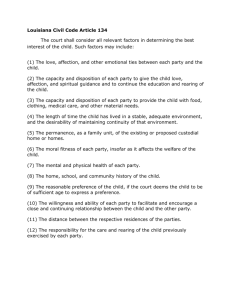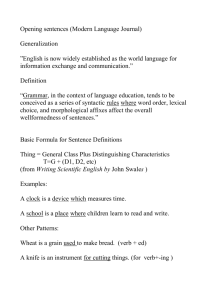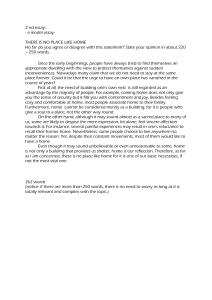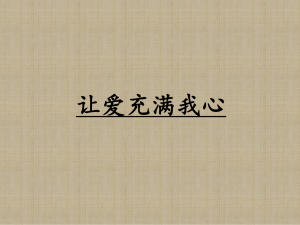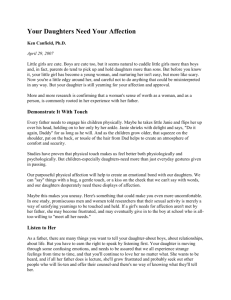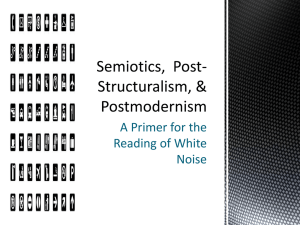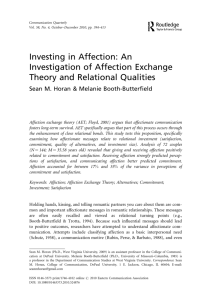Asian cultural values prescribe Asian Americans to show
advertisement
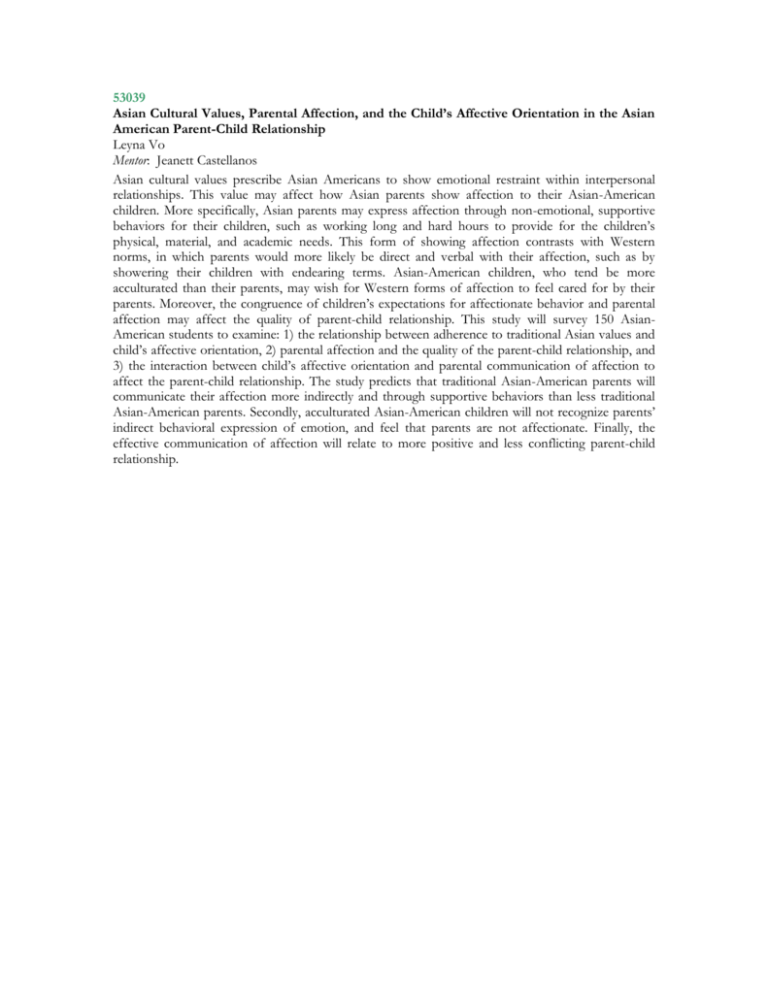
53039 Asian Cultural Values, Parental Affection, and the Child’s Affective Orientation in the Asian American Parent-Child Relationship Leyna Vo Mentor: Jeanett Castellanos Asian cultural values prescribe Asian Americans to show emotional restraint within interpersonal relationships. This value may affect how Asian parents show affection to their Asian-American children. More specifically, Asian parents may express affection through non-emotional, supportive behaviors for their children, such as working long and hard hours to provide for the children’s physical, material, and academic needs. This form of showing affection contrasts with Western norms, in which parents would more likely be direct and verbal with their affection, such as by showering their children with endearing terms. Asian-American children, who tend be more acculturated than their parents, may wish for Western forms of affection to feel cared for by their parents. Moreover, the congruence of children’s expectations for affectionate behavior and parental affection may affect the quality of parent-child relationship. This study will survey 150 AsianAmerican students to examine: 1) the relationship between adherence to traditional Asian values and child’s affective orientation, 2) parental affection and the quality of the parent-child relationship, and 3) the interaction between child’s affective orientation and parental communication of affection to affect the parent-child relationship. The study predicts that traditional Asian-American parents will communicate their affection more indirectly and through supportive behaviors than less traditional Asian-American parents. Secondly, acculturated Asian-American children will not recognize parents’ indirect behavioral expression of emotion, and feel that parents are not affectionate. Finally, the effective communication of affection will relate to more positive and less conflicting parent-child relationship.
